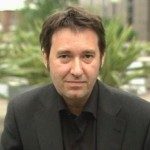Présentation
The 26th Pasteur-Weizmann meeting
Integrative biology to battle emerging diseases
November 21-22, 2018
Duclaux amphitheatre, Institut Pasteur
The 26th Pasteur-Weizmann symposium will gather scientists working on multiple facets of integrative biology, from the molecular scale through that of cells, organs and individuals to entire populations, and mobilizing a variety of computational, experimental and other investigative approaches, with the common goal of better understanding and fighting emerging diseases.
Registration is free but required. Please register here.
Wednesday, November 21
Welcome and opening remarks
8:30 – 9:10 Registration and coffee
9:10 – 9:30 Introduction by the organizers (N. Regev, T. Bourgeron, C. Zimmer)
Stewart Cole, Institut Pasteur, president
Andrès Alcover or David Weizmann, Pasteur-Weizmann Council
Session 1: Methods for integrative biology, genetics and omics
09:30 – 09:50 Yitzhak Pilpel, Weizmann Institute of Science
Errors and edits in the Central Dogma
09:50 – 10:10 Hugues Aschard, Institut Pasteur
Balancing complexity in genetic studies of multifactorial diseases
10:10 – 10:30 Olivier Gascuel, Institut Pasteur
Reconstructing and predicting the evolution of drug resistances in HIV
10:30 – 11:00 Coffee break
Session 2: Signaling, organelle biology and development
11:00 – 11:20 Neta Regev-Rudzki, Weizmann Institute of Science
Malaria parasites regulate secretion of extracellular vesicles carrying distinct cargo
11:20 – 11:40 Tim Wai, Institut Pasteur
Mitochondrial form and function in health and disease
11:40 – 12:00 Karina Yaniv, Weizmann Institute of Science
Building blood and lymphatic vessels in health and disease
12:00 – 14:00 Lunch
Session 3: Molecular basis of diseases, environment and global health
14:00 – 14:20 Rony Dahan, Weizmann Institute of Science
The role of Fc receptors in the therapeutic anti-tumor activity of checkpoint antibodies
14:20 – 14:40 Thomas Bourgeron, Institut Pasteur
The genetics of autism from risk to resilience
14:40 – 15:00 Lluis Quintana-Murci, Institut Pasteur
Population genetics and genomics of immunity to infection in humans
15:00 – 15:20 Simon Cauchemez, Institut Pasteur
Modelling the spread of pathogens in human populations
15:20 – 15:40 Idit Shachar, Weizmann Institute of Science
Molecular mechanisms regulating B cell survival in health and disease
15:40- 16:10 Coffee break
Session 4: Social, behavioral and neuro sciences
16:10- 16:30 Michal Schwartz, Weizmann Institute of Science
Targeting immune checkpoints to fight Alzheimer’s disease and dementia
16:30- 16:50 Meital Oren, Weizmann Institute of Science
Insights into the mechanism of sexually dimorphic synaptic connectivity
16:50- 17:10 Tamara Giles-Vernick, Institut Pasteur
Interpreting human and great ape microbiome in the Congo River Basin
Keynote talk:
17:10 – 18:00 Tuuli Lappalainen, New York Genome Center & Columbia University
Functional variation in the human genome: Lessons from the transcriptome
Thursday, November 22
Session 1 (continued): Methods for integrative biology, genetics and omics
10:00 – 10:20 Yonatan Stelzer, Weizmann Institute of Science
DNA methylation dynamics during embryogenesis at single-cell resolution
10:20 – 10:40 Christophe Zimmer, Institut Pasteur
Computational imaging and modeling approaches for cell biology
10:40 – 11:00 Michael Nilges, Institut Pasteur
Getting the most out of heterogenous data – Bayesian data analysis in molecular modeling
Session 2 (continued): Signaling, organelle biology and development
11:00 – 11:20 Ori Avinoam, Weizmann Institute of Science
Endocytosis as a paradigm for understanding membrane remodeling at the cell surface
11:20 – 11:40 Sigolène Meilhac, Institut Pasteur and Institut Imagine
The right loop in heart morphogenesis
12:00- 13:30 LUNCH
Session 3 (continued): Molecular basis of diseases, environment and global health
13:30-13:50 Ziv Shulman, Weizmann Institute of Science
Cellular dynamics of antibody affinity maturation
13:50-14:10 Arnaud Fontanet, Institut Pasteur
Zika : Genesis of a pandemic
14:10-14:30 Einat Segev, Weizmann Institute of Science
Bacterial Effects on Algal Life and Death
Session 4 (continued): Social, behavioral and neurosciences
14:30 – 14:50 Michal Rivlin, Weizmann Institute of Science
Unexpected computations in retinal circuits
14:50 – 15:10 Lulla Opatowksi, Institut Pasteur
Assessing the transmission of antibiotic resistant bacteria on human contact networks
15:10 – 15:20 Closing remarks
15:20 – 16:00 Cocktail


